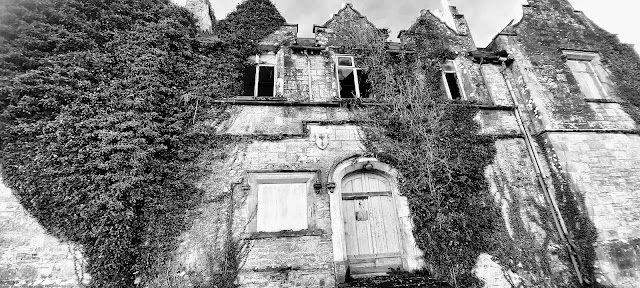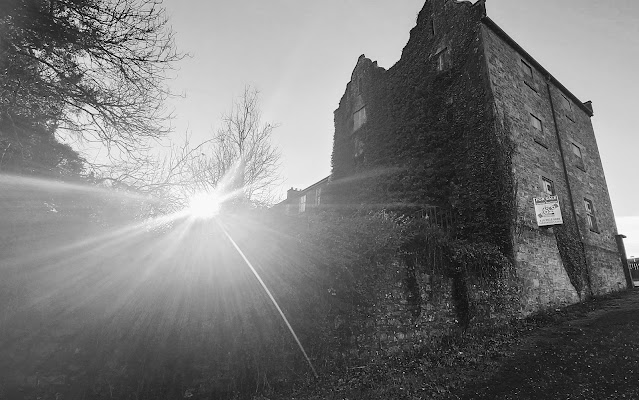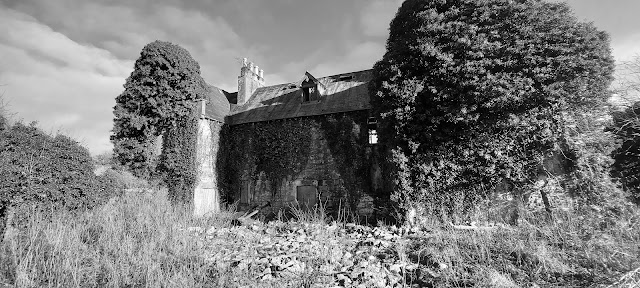 |
| The workhouse building in Carrickmacross where Anna Eakins spent several years. Source: https://brenspeedie.blogspot.com/2013/08/from-land-wars-to-civil-war-brief.html |
In 1913 in Carrickmacross Workhouse, disagreements between some female inmates led to the Board of Guardians seeking to bring one of them to court - as it happened, a Deaf inmate: Anna Eakins.
 |
| Source: Petty Sessions Order Books, Carrickmacross Petty Sessions, 1913. www.findmypast.ie |
Ellen McCaul (hearing) accused Anna Eakins (Deaf) of assault - threatening her with a sweeping brush, and later, throwing a chamber pot's contents over her. Another hearing woman named Meegan made similar complaints. But there was another side to the story, and we get a glimpse of it through a long letter that Anna wrote for the court which was read out.
 |
| Source: Dundalk Democrat, 29 November 1913, p. 14 |
Anna complained that McCaul and Meegan called her names and mocked her, but it was from jealousy that Anna had a good relationship with the workhouse Master and the nuns that worked in the workhouse hospital, and was given manageable work by them. In particular, Anna was scathing about McCaul; she apparently was in the habit of bringing scraps of food into the workhouse (including rotten fish) and hiding them under her mattress, causing a horrible smell in the dormitory where they all slept, which was "so evil-smelling that the rats and crows coming into the yard could not bear to go near them". Anna was afraid to go to prison, and stated that "jail is an awful place"; when she had been there before she "had no bed or no sleep, awful what they would give you to eat". Nevertheless she was resigned to her fate: "Send me to jail for a fortnight, that is enough, or forgive me."
 |
| Source: Dundalk Democrat, 29 November 1913, p. 14 |
The case was adjourned for three months and Anna was warned to be on good behaviour.

![IRISH ECCLESIASTICAL GAZETTE. [SATURDAY, NOVEMBER 28, 1885, p. 990] A CLERGYMAN desires a situation for a deaf mute as parlour maid. She thoroughly understands her duties, and is remarkably intelligent. Trained at Claremont Institution. Apply to Rector, Castlebellingham.](https://blogger.googleusercontent.com/img/b/R29vZ2xl/AVvXsEgZo4BudnG5Z-RPreATfhObUY_lYmajrHPJfF62B6Pu8EthRPVVanJMXDthqKkIl87NnmIMqgPkpAjbOvc7sSKCaksqiZXGsw17cXnQYDVGlzKwqDV5_g0v2OGPAOE2cUgZa9ZPpJkg1XKo97DBGTFb-WOp_3J52rnqq5nEf9PuCEF-CbFshPOgnYvG9A/w400-h127/1.png)








































